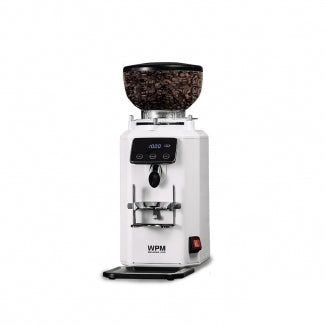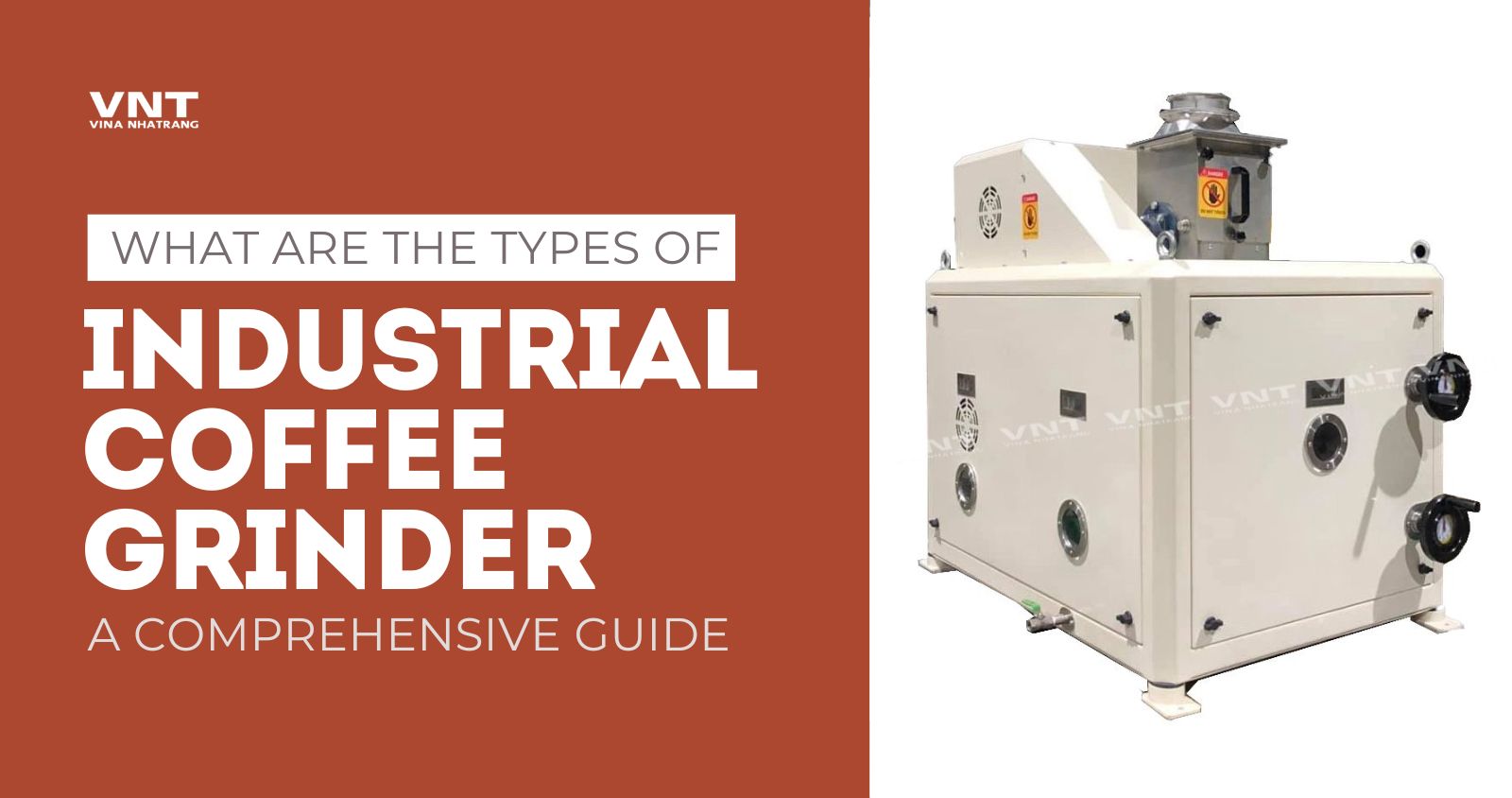Top Functions to Try To Find in an Industrial Coffee Grinder
When evaluating a commercial coffee grinder, it is vital to identify crucial functions that affect both efficiency and long life. Uniformity in work size is essential for optimum removal, while flexible grinding rate allows for a balance between effectiveness and top quality. Additionally, the selection of materials and style contributes significantly to longevity and ease of upkeep. However, the subtleties of these functions can considerably influence not only the high quality of coffee generated but also the general functional performance. Comprehending these facets is crucial for making an educated decision that satisfies details business requirements.
Work Size Consistency
While different variables can influence the quality of made coffee, grind size consistency remains extremely important in accomplishing optimal removal. The uniformity of coffee premises straight influences the developing procedure, as unequal fragment dimensions can result in over-extraction or under-extraction. This variance results in imbalanced flavors, where specific notes might be overpowering while others are silenced.
Industrial coffee grinders are developed to supply a high degree of precision, frequently using burr grinding devices to ensure a consistent grind dimension. Unlike blade mills, which can create a mix of penalty and coarse fragments, burr mills squash the beans in between two surface areas, permitting better control over work size. This uniformity is critical across different developing methods, whether espresso, French press, or pour-over, as each strategy requires specific work sizes for optimal taste extraction.
Additionally, consistency in grind dimension adds to the general performance of the brewing process. A consistent work enables also water circulation, minimizing the risk of funneling and enhancing extraction performance. In summary, purchasing a commercial coffee grinder with a concentrate on work size consistency is essential for attaining high-grade coffee with preferable flavor accounts.
Grinding Speed
Grinding speed plays an important role in the total efficiency of industrial coffee mills, directly affecting both the high quality of the work and the effectiveness of the procedure. Industrial Coffee Grinder. Greater grinding rates can dramatically enhance the throughput, making it possible to process larger amounts of coffee beans in a shorter timespan. This is especially essential for services that rely upon high-volume manufacturing, such as coffee roasteries and coffee shops
Nevertheless, while speed is important, it is similarly important to balance it with the top quality of the grind. Exceedingly high grinding rates can generate warmth, which may negatively influence the flavor profile of the coffee by triggering the beans to shed necessary oils and aromas. For that reason, a mill that uses adjustable rate setups can supply ideal adaptability, allowing operators to tailor the grinding procedure according to details demands.
In addition, the grinding speed should correspond to ensure uniformity in the grind size, further adding to the overall taste and developing top quality of the coffee. In summary, assessing grinding speed is essential for choosing an industrial coffee mill that fulfills both performance and high quality needs.
Build High Quality and Sturdiness
The performance of a commercial coffee grinder is not only figured out by its grinding speed; construct quality and durability are just as crucial factors that affect lasting efficiency and reliability. A sound grinder will endure the rigors of day-to-day usage, making it an audio investment for any type of commercial operation.

Resilience also reaches the mill's electric motor and internal devices. Industrial coffee grinders must be furnished with sturdy electric motors efficient in sustaining prolonged procedure without overheating. Moreover, robust burrs are crucial, as they directly influence the quality of the work and add to the overall long life of the device.

Convenience of Usage and Upkeep
Continually focusing on simplicity of use and maintenance can dramatically boost the operational effectiveness of a commercial coffee mill. Easy to use functions such as instinctive controls and clear labeling are crucial for lessening downtime and making sure that drivers can promptly adjust to the devices. An ergonomic layout, including height-adjustable hoppers and accessible grinding chambers, permits comfortable procedure and promotes the loading and discharging of coffee beans.
Furthermore, convenience of maintenance is critical for extending the life expectancy of the mill. Devices with removable parts and components designed for fast cleansing can simplify upkeep tasks, minimizing the moment invested in routine maintenance - Industrial Coffee Grinder. Search for mills that integrate self-cleaning systems or require marginal disassembly, as these features can save valuable labor hours
In addition, clear maintenance routines and documentation are crucial. Grinders that come with comprehensive user handbooks outlining upkeep procedures can aid drivers stick to ideal methods, making sure constant efficiency and quality. By investing in an industrial coffee mill that highlights ease of use and upkeep, businesses can boost performance, minimize functional prices, and maintain the high standards anticipated in coffee production.


Noise Level Reduction
When choosing a commercial coffee grinder, noise degree decrease is an essential factor that can significantly affect the workplace. High noise levels can result in staff member fatigue, decreased focus, and potential hearing damage with time, making it vital to pick a mill made with sound-dampening functions.
Try to find grinders that include advanced noise-reduction modern technologies, such as sound-insulated housings and vibration-dampening places. These functions help to lessen functional audios, producing a quieter ambience helpful to efficiency. Industrial Coffee Grinder. Additionally, picking grinders geared web link up with low-noise electric motors can further improve sound reduction, making sure a much more pleasant working setting
Consider the grinder's general layout. The positioning of the mill within the workspace ought to be calculated.
Inevitably, buying a coffee grinder that focuses on noise decrease not only improves the convenience of employees yet additionally straightens with a dedication to preserving a effective and secure job atmosphere. This attention to detail can result in enhanced staff member fulfillment and retention.
Conclusion
In summary, selecting a commercial coffee mill necessitates cautious consideration of several crucial functions. Grind size consistency is crucial for optimum extraction, while flexible grinding rate promotes an equilibrium between throughput and quality. The option of materials directly impacts develop quality and resilience, making sure long life in a requiring atmosphere. Ease of usage and upkeep, along with sound decrease modern technologies, boost functional efficiency and comfort. Prioritizing these features will result in a anonymous much more effective grinding remedy.
Industrial coffee mills are developed to supply a high level of precision, typically utilizing burr grinding systems to guarantee a this article consistent work dimension. Unlike blade grinders, which can develop a mix of fine and crude fragments, burr mills squash the beans in between 2 surface areas, enabling for better control over grind dimension. In recap, investing in a commercial coffee mill with a focus on work dimension consistency is essential for attaining top quality coffee with desirable taste profiles.
Grinding rate plays a vital function in the overall performance of industrial coffee grinders, directly impacting both the high quality of the grind and the efficiency of the operation. A grinder that offers flexible speed setups can give ideal flexibility, permitting operators to tailor the grinding process according to details needs.